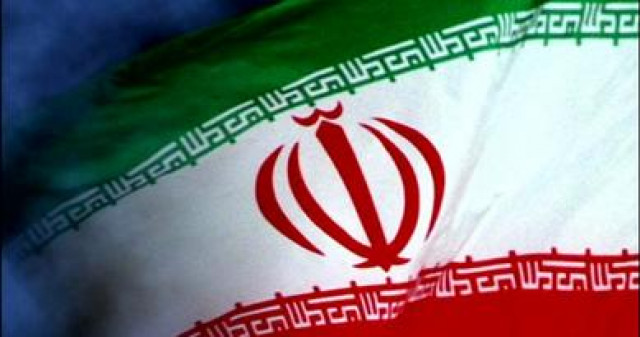Iranians feeling the pinch of Western sanctions
Iranians say inflation has increased, private sector suffering as government sector continues expansion.

On Sunday, a European Union embargo on Iranian crude oil took full effect in a joint effort with the United States to force Tehran to curb nuclear activities that the Western powers say pose a military threat, despite Iranian denials.
Already reeling from the preliminary phase of the embargo and tough measures imposed on Iran's central bank since the beginning of the year, the measures look set to deepen economic woe, through spiraling prices and mounting job losses.
University lecturer Ayhan estimated that his personal living costs in Tehran have gone up by more than two thirds in the last two months. "It's really crazy," the 33-year-old said.
"Prices are not stable these days. Every day it is increasing."
He was now paying over $20 a kilogram ($10 a pound) for red meat, double what it was a few months ago: "This is all happening while many factories around Tehran are idle and many people have no job."
A series of conversations with residents of the Iranian capital revealed very similar concerns for livelihoods, and experiences of rising prices which go beyond the inflation rate published in official statistics. Like Ayhan, none were willing to risk disclosing their full name when discussing problems.
Azaam, who is 32 and married, has not previously had to go out to work. That has changed: "Leading a normal life has become difficult for ordinary people," she said.
"It has gotten so difficult that my husband is no longer able to afford our simple life alone and I am now looking for a job," she added.
Wealthy few
Better off Iranians are concerned that the current situation is quickly eroding their savings and have been clamoring to buy hard currencies or gold, over fears of a currency collapse.
The picture appears less gloomy in the fashion emporiums of northern Tehran, where many wealthy Iranians shop in stores that stock hugely expensive European fashion lines.
Valuable imported cars, which attract a whopping 80 per cent duty, are a visible sign that a few continue to thrive as the majority sink deeper into debt.
A media executive who asked not to be named said there was still plenty of money to be made from government contracts:
"There is the government sector which is fine, even expanding," he said. "But the private sector has been suffering badly for the last nine months or so. A lot of private businesses have lost more than 70 per cent of their trade.
"We've suffered too, but we have some government contracts so there have been no lay-offs and things have got a little better over the last two months."
Unemployment
Outside the government cushion, unemployment has soared as official inflation hit 21.5 per cent for the year to March and firms have found import and running costs soaring. Many say that official statistics do not reflect the full impact of rising prices for Iranian businesses and households.
Companies which import goods have been struggling to survive the plummeting rate of the Rial which has lost more than 40 per cent of its value against the dollar since the beginning of this year.
In the last year, Iranian media have reported on tens of thousands of jobs being cut after businesses of all types have come under threat.
This week alone, the Iranian Labour News Agency said tens of thousands of workers in household appliance factories were in danger of losing their jobs and that contracts for workers in automotive units had been reduced from a year to three months.
It is a similar story across many other sectors.
Karim, 51, lost his job in a materials factory two months ago: "The factory struggled for a few months to keep its production steady but since the prices of raw materials had suddenly gone up significantly, they weren't able to survive for long," he said. "The owners fired everyone and sold it.
"I had worked there for over 10 years and couldn't believe this is how it was ending."
Many Iranians blame sanctions for their troubles, and so focus on their country's Western critics.
Some of the more dramatic shifts in costs derive more directly from Iranian government action; President Mahmoud Ahmadinejad's economic reform plan has withdrawn generous price subsidies on some staples and replaced them with direct cash handouts to the most needy over the past 18 months.
The government action has been driven in part by a need to rein in its own spending due to foreign sanctions, though Ahmadinejad's critics also accuse him of simple mismanagement.
As a result of the surges in electricity, water and natural gas prices, businesses which had relied on state subsidised inputs have struggled to cope with the new environment. Ahmadinejad's opponents have tried to block the next phase of the reform program, which is due to cut subsidies further.
Whatever is to blame, those who have done best from the changing circumstances include those connected to the government who have access to dollars at the preferential official rate for the Rial, as well as the elite Revolutionary Guards, an institution which analysts say controls a third of the economy.
Those who are faring badly, however, may pose a problem for the government - in a way the Western powers who have deployed sanctions to sway Iran's leaders may welcome.
Mehrdad Emadi, an Iranian-born economic adviser to the European Union, believes Iran will get by for the time being but signs of deepening economic problems are likely to become more apparent in the months ahead: "By October, I would expect to see a significant increase in poverty in large cities ... and increases in unemployment," Emadi said. "By then we may have moved from economic crisis to economic disintegration."
For now, many rely on borrowing from their extended families to get by: "People like me are always in debt, either to the bank or to their various acquaintances," said another Tehran resident, Amin, a film-maker.
"What I could buy with my salary last month, I can't buy this month.
"Each month we fall further behind."




1701351241-1/Afghan-refugees-(3)1701351241-1-208x130.webp)














COMMENTS
Comments are moderated and generally will be posted if they are on-topic and not abusive.
For more information, please see our Comments FAQ